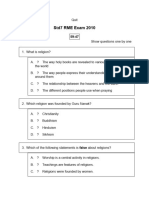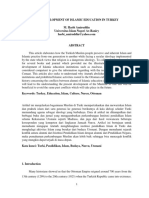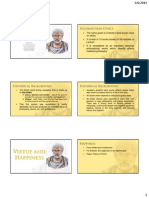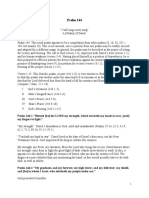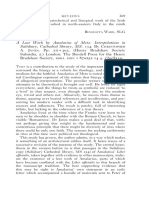50% found this document useful (2 votes)
2K views21 pagesRme 6 Notes
Uploaded by
oaitsemolebinyaneCopyright
© © All Rights Reserved
We take content rights seriously. If you suspect this is your content, claim it here.
Available Formats
Download as PDF, TXT or read online on Scribd
50% found this document useful (2 votes)
2K views21 pagesRme 6 Notes
Uploaded by
oaitsemolebinyaneCopyright
© © All Rights Reserved
We take content rights seriously. If you suspect this is your content, claim it here.
Available Formats
Download as PDF, TXT or read online on Scribd
/ 21



































